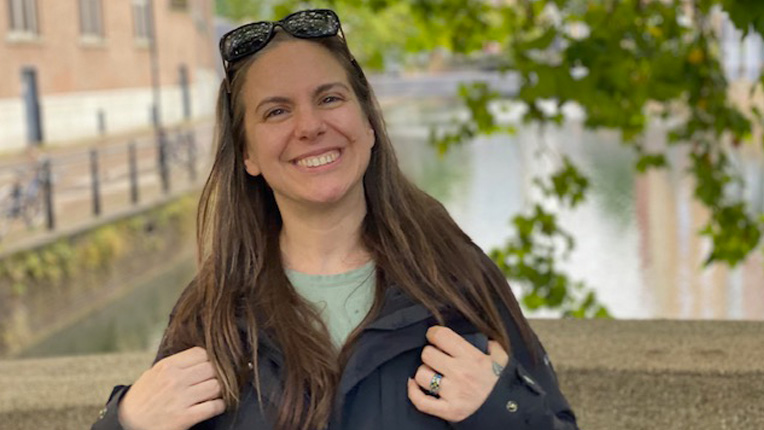People of ACM European Chapters - Alicia Takaoka
January 14, 2025
How did you become interested in the intersection of gender issues and information technology?
I found that being born female, I just couldn’t escape this aspect of my life, no matter how hard I tried. Part of what I do is to normalize personal experience as data. The too long/didn’t read (tl/dr) version is that gender shapes everything we do, and the omission and erasure of non-male genders from datasets as well as teams that build and develop the built environment has massive consequences in a more technologically embedded world. We see this in many empirical software engineering studies and in design science cycles.
What is the special focus of the Software for a Better Society Research Group at NTNU?
The research group, led by Letizia Jaccheri, is dedicated to producing more inclusive software and creating a more diverse landscape of software engineers. In my time there, I focused on bringing data feminism and intersectionality into software engineering, particularly for climate change and in empirical research methods. One of the research groups I led was about developing tools for mental health and computing education. Two of my students examined the impacts of imposter syndrome on undergraduate teams and if this could be mitigated. Another student explored sense of belonging in computing education from a gender perspective, and another student identified ways in which stress management and mindfulness could assist with anxiety and depression. All of these projects are amazing, and we are exploring ways to share them with the larger software engineering research community.
Will you tell us about some of the regular activities or upcoming plans for the ACM-Trondheim Chapter?
We do not have a regular events calendar, but one activity we are looking forward to is a display of art we made at our Zine Party in September 2024. Zine is a term used to describe self-published/ small circulation works. Our zine party was focused on resilience and healing. We hosted women from academia and industry as well as students and former programmers from Trondheim and Oslo, Norway. In a feature panel, we heard from Ayanna Samuels (OsloMet), Olga Marken (AtB), and Stephanie Kemna (DNV) about their journeys in STEM and their experiences as women and immigrants in computing in Norway. We also made pages for a digital zine answering the question, “What does it mean to be a woman in computing?” The issue will be live shortly, and the panels will also be on display as an exhibition in Trondheim. More details on this initiative are forthcoming. The link to the zine can be viewed here.
What is one example of a research area you are working on now that will be especially impactful in the coming years?
My work with CESI is extremely important to making the energy transition less exploitative. We have some projects in development for inclusion and diversity from an intersectional perspective that we hope will inform policy.

I’m Alicia Julia Wilson Takaoka and I am a Postdoctoral Researcher at Erasmus University. Here, I am employed in the Center for Energy Systems Intelligence (CESI) to investigate AI and inclusion for a just and fair energy transition. The Center is an AI, Data, and Digitalization (AIDD) Convergence Center, which is a collaborative initiative with several research partners across the country. AIDD Convergence brings together the power of AI to transform aspects of society in alignment with the UN Sustainable Development Goals from an inter-and transdisciplinary perspective. In my role, I connect people and projects related to transitioning to green and alternative energy by 2050 in alignment with the EU Green Deal.
I also do my own research on intersectionality and inclusion related to the energy transition. This work involves the inclusion and prioritization of marginalized voices and personal experiences as data for inclusion in the digital landscape. Prior to this new position, I held a postdoctoral researcher position in the Software for a Better Society Research Group (SBS) at the Norwegian University of Science and Technology (NTNU) advancing awareness of the importance of intersectionality and feminism in the ethical construction of data. In this role, my work focused on software engineering research methods, the gender-climate change-IT nexus, and the intersections of gender, mental health and computing education. I am presently Vice Chair of the ACM-W Chapter in Trondheim, Norway, and I am working to establish an ACM-W Chapter in my new home in the Netherlands jointly with women in computing at TU Deflt. If you are in the Netherlands and interested in joining our Holland Chapter, please email me.
My PhD (2021) is from the University of Hawai`i at Mānoa in Communication and Information Sciences, specializing in social informatics. Our program is interdisciplinary, and we are encouraged to explore and design our own intersections. This program afforded me the opportunity to navigate liminal spaces and make connections across gender studies, informatics, policy, and data science where none previously existed.